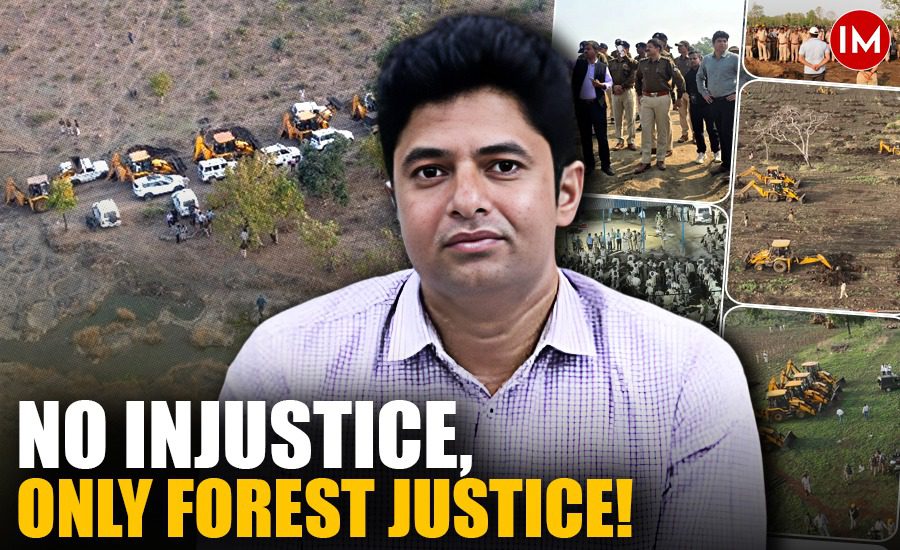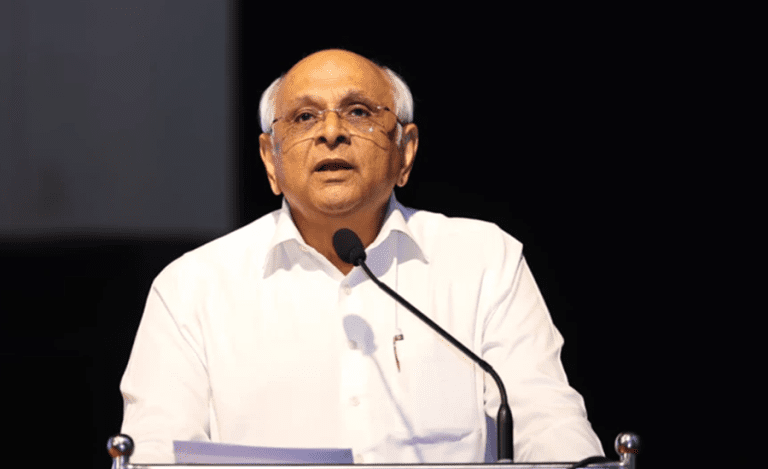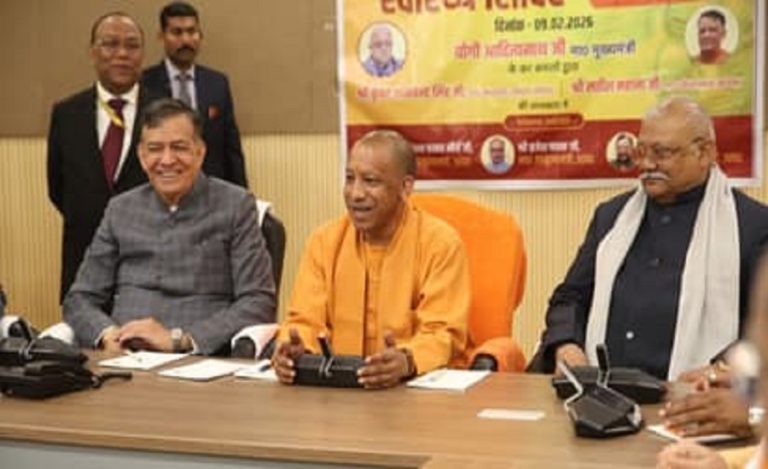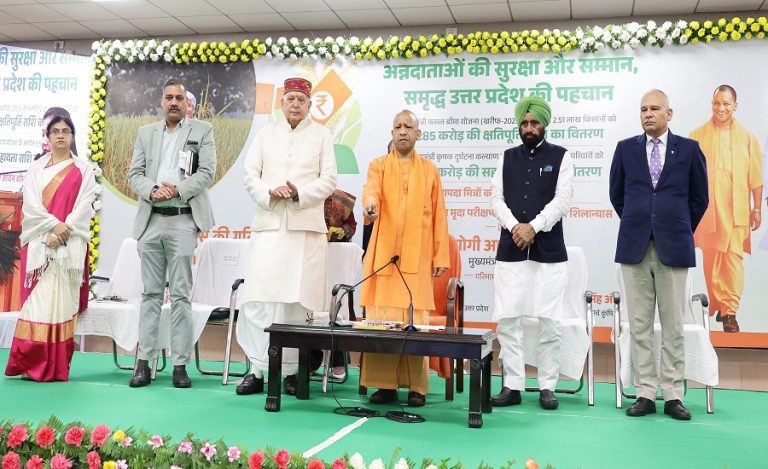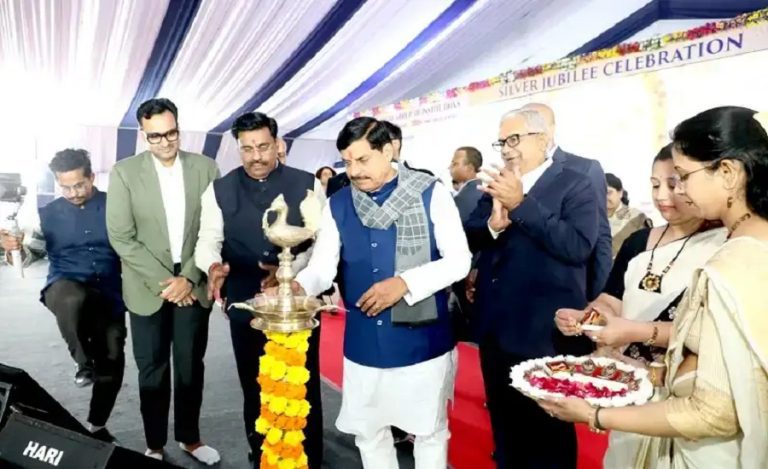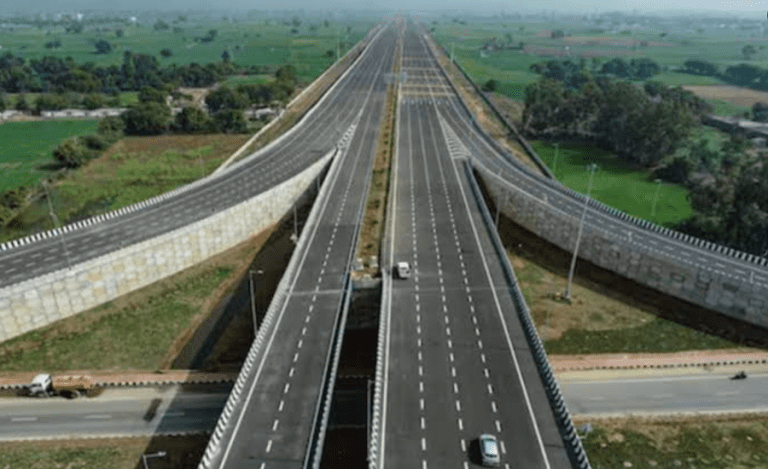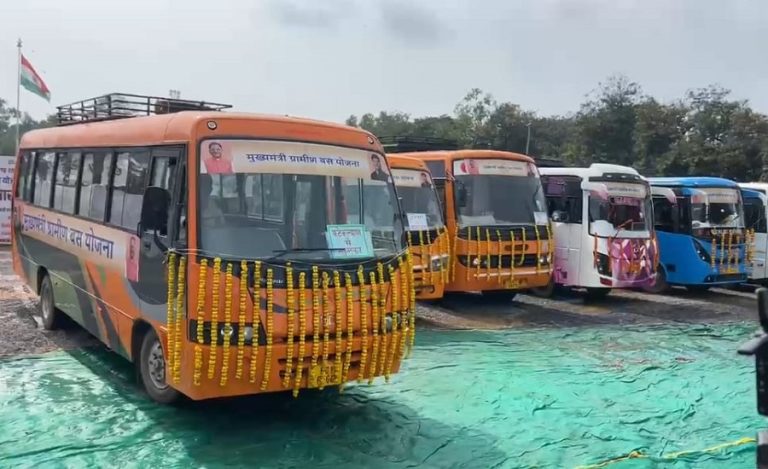The Burhanpur-Khandwa forest division in Madhya Pradesh, once known for its dense green cover and rich biodiversity, faced an existential threat. Over the past few years, nearly 3,000 hectares of forest land had been slowly but systematically encroached upon. Illegal deforestation, organized encroachment rings, and politically shielded land mafias were turning the once-thriving ecosystem into barren tracts of land.
But change came in July 2022, when 2017-batch Indian Forest Service (IFS) officer Rakesh Kumar Damor took charge as the Divisional Forest Officer (DFO) of Khandwa Forest Division. What followed was a series of meticulously planned eviction drives, high-risk operations, and a relentless campaign to reclaim forest land – led from the front by Damor himself.
Indian Masterminds interacted with Mr Damor to learn more about his initiative and how he implemented the forest land reclamation drive.
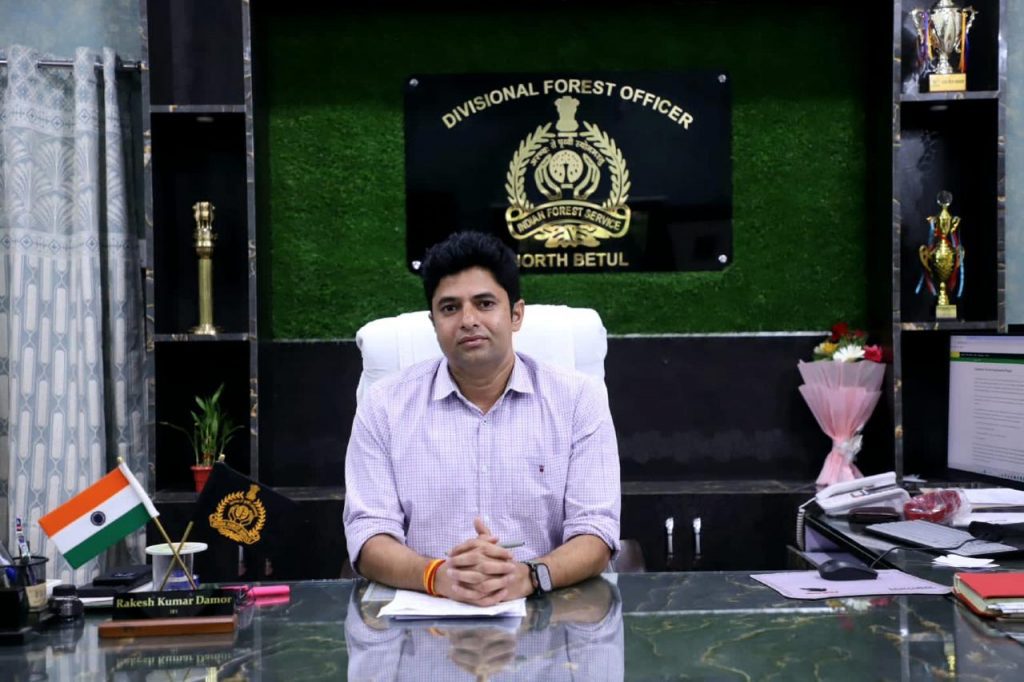
The Situation on the Ground: A Forest Under Attack
“When I joined, the forest was under siege. What I saw wasn’t just encroachment – it was an assault on the ecosystem,” says Rakesh Damor, reflecting on his early days in Khandwa.
Between 2019 and 2021, the Gudi and Samseraa ranges of Khandwa saw rampant illegal activity. Forests were being cleared, often overnight, and groups of people – sometimes backed by local leaders – began claiming ownership. Much of this deforestation was well-organized, with machinery being used to raze green cover ahead of the monsoon season.
“These weren’t small-scale, subsistence farmers. Some of these encroachers had no connection to the land or the region. It was land-grabbing under the pretext of agriculture,” Damor clarifies.
He also pointed out the role of local influencers like the so-called ‘Nawari Patels’, who allegedly invited outsiders to occupy forest land and facilitated illegal cultivation. “These local leaders had amassed 60 to 80 acres. This wasn’t livelihood – it was organized crime,” Mr Damor emphasized.
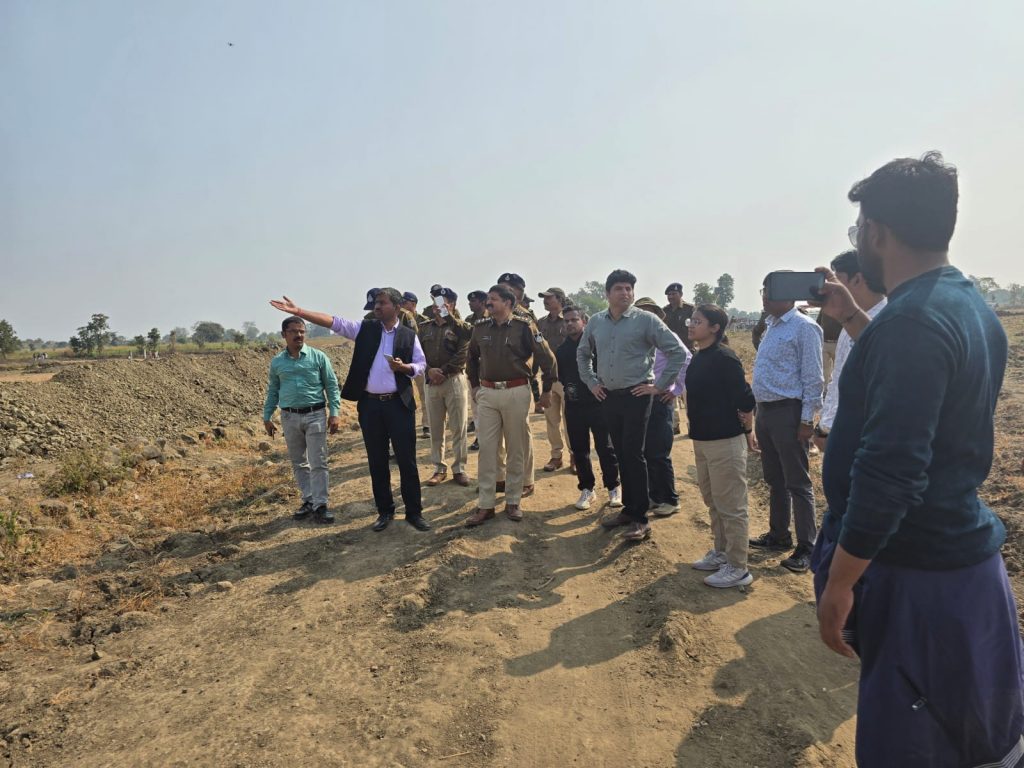
Taking Charge: Planning and Coalition Building
Upon taking charge, Damor initiated a ground-level assessment of the situation and formed a coalition of authorities. Working closely with the District Collector, Superintendent of Police, Commissioner, IG, and other administrative departments, he ensured that the eviction campaign had strong institutional backing.
“We conducted multiple Task Force meetings with all stakeholders. We made sure everyone – administration, forest, police – was on the same page. This was going to be a fight, and we needed to go in fully prepared,” he recalls.
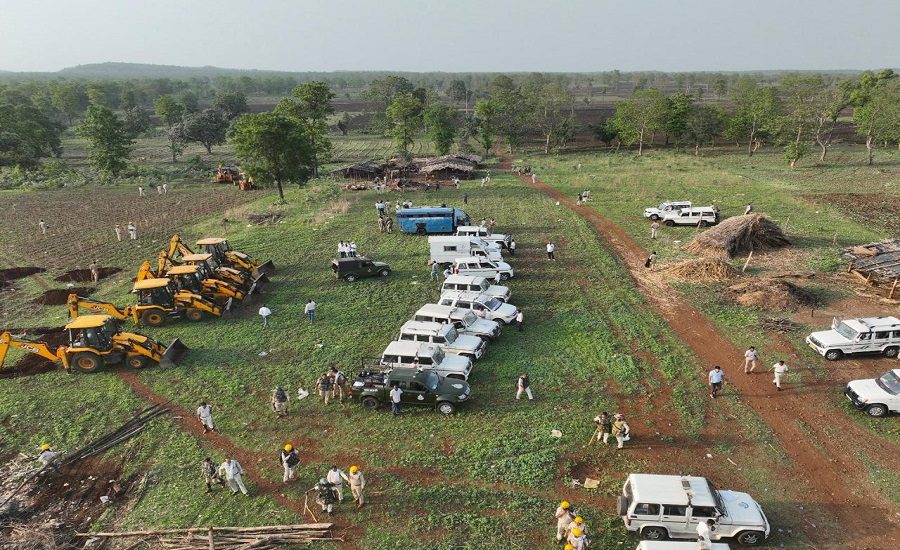
High-Risk Operations: The Eviction Drives
The first wave of eviction began in December 2024, with precision-targeted operations:
- 26/12/2024: 285 hectares cleared in Compartment 745, Beat Naharmaal
- 27/12/2024: 70 hectares cleared in Compartment 749, Beat Bihalikheda
But these weren’t peaceful operations. In Compartment 748, forest staff came under violent attack from encroachers, resulting in four personnel being injured. In response, cases were registered against 40 individuals, who were arrested and remained in jail for four months before securing bail.
The second wave in January 2025 was even more expansive:
- 830 hectares in Compartments 740, 741, 747 (Takkalikhenda)
- 250 hectares in Compartment 742 (Beat Kuntha)
- 585 hectares in Compartments 745/746 (Naharmaal)
- 200 hectares in Compartment 760 (Sitabedi, Samseraa Range)
- 70 hectares in Beat Bihalikheda
A massive security presence was deployed. “We had over 100 personnel including police, forest guards, and officials. It was a joint operation. Sometimes, the force touched 500 to 600 people on-ground. That’s how intense it was,” says Mr Damor.
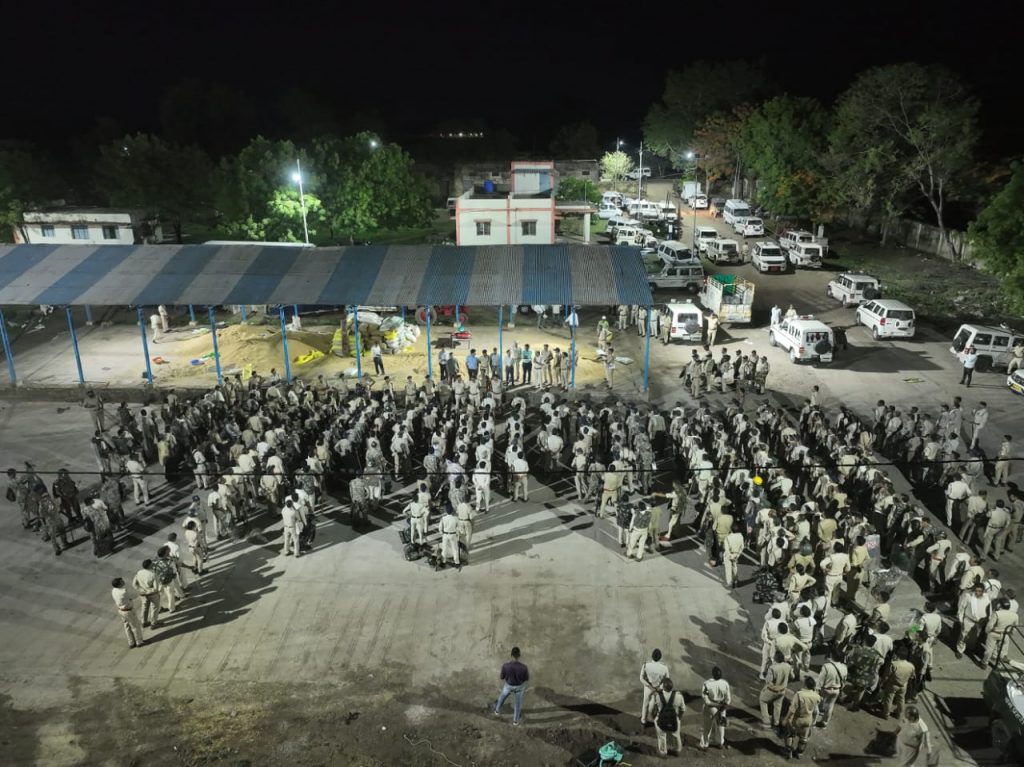
The Final Push: June 2025
The culmination came on June 9 and 10, 2025, in a two-day high-risk drive. This time, 200 hectares of land were freed from Compartment 748, and 40 heavy machines (JCBs) used for deforestation were seized.
By June 10, 2025, the numbers spoke for themselves:
- 2,130 hectares of forest land reclaimed
- 58 criminals jailed
- 40 machines seized
- Over 1,600 hectares worth of wood recovered and sent to government depots
- Zero Tolerance for Timber Mafia and Cross-State Surveillance
Beyond local encroachment, Damor’s team also cracked down on the timber mafia. He exposed a network operating across Madhya Pradesh, Maharashtra, Rajasthan, and Haryana, with roots in Harda district.
“We’ve seized vehicles, traced supply chains, and even shared leads with forest departments in other states. This is not just local – it’s inter-state forest crime,” he notes.
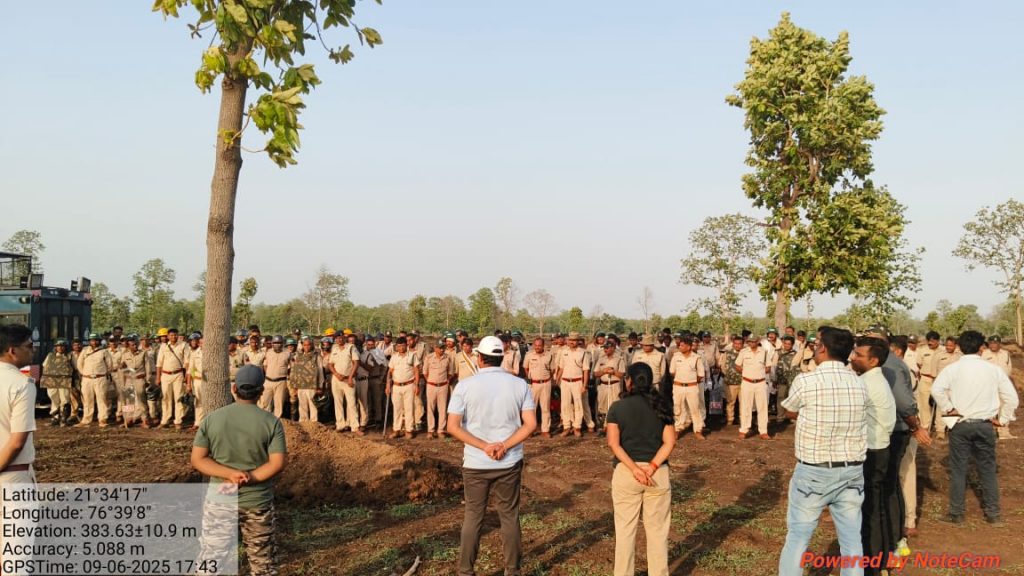
Community & Political Resistance: Handling With Strategy
Despite aggressive operations, Damor made sure no injustice was done to genuine landholders. His team conducted satellite image analysis, comparing data from 2005 to 2021, to determine which encroachments were recent.
“We ensured that only the illegal and recent encroachments were targeted. We took all political leaders, MLAs, ministers, and media into confidence. There was no injustice – just enforcement,” he affirms.
One of Damor’s most powerful lines encapsulates his philosophy – “We only freed encroached land. There has been no injustice to anyone.”
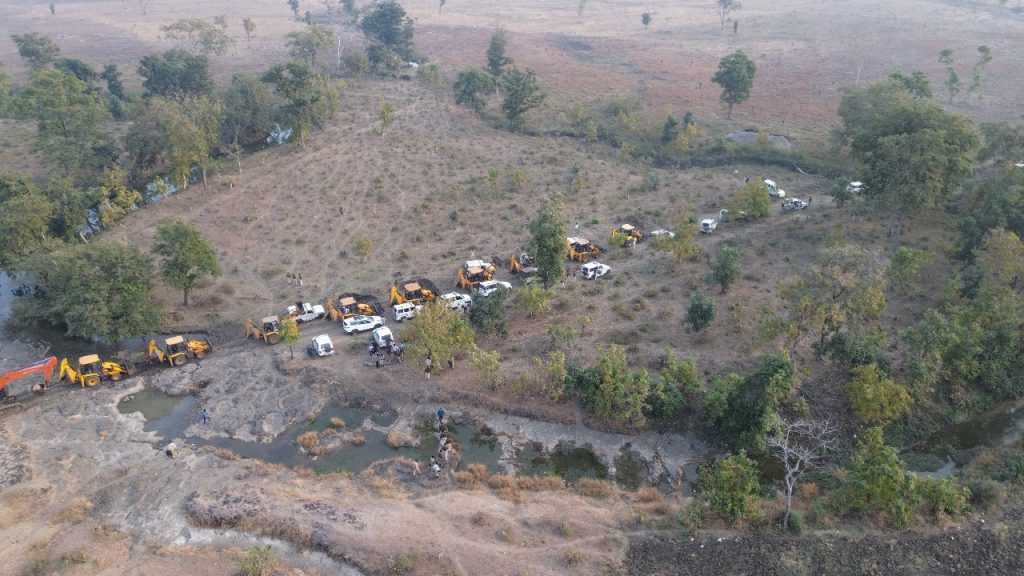
The Bigger Picture: Reclaiming Forest, Restoring Balance
For Damor, this wasn’t just about reclaiming land – it was about restoring the ecological balance of the region.
“Every tree cut affects the ecosystem. Once you destroy a forest, it’s not just land lost – it’s water, climate, animals, everything. Protection is our first priority as forest officers,” he asserts.
Even after the massive eviction drives, vigilance continues. Forest personnel now monitor the reclaimed areas, prevent fresh encroachments, and continue legal proceedings against those involved.
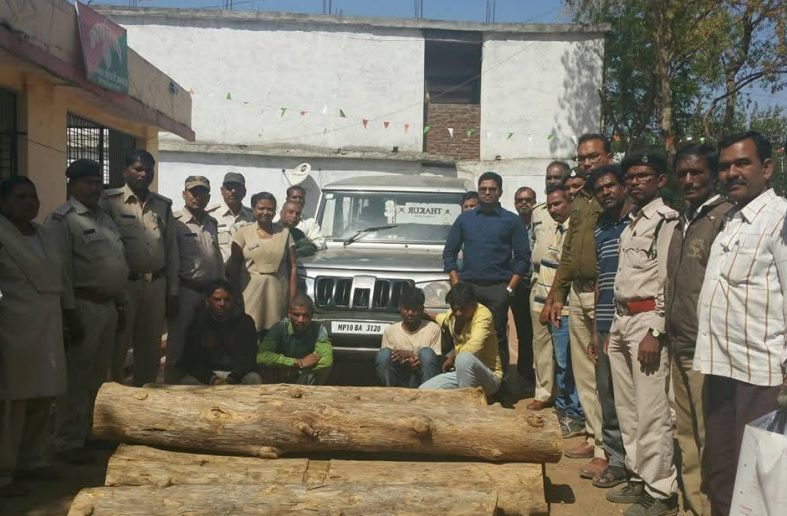
A Model for Forest Governance
In just over a year and a half, IFS Damor transformed the Khandwa Forest Division into a case study of strong governance and ecological justice. His combination of planning, legal strategy, multi-agency coordination, and boots-on-ground leadership has proven that forest conservation, when pursued with integrity and resolve, can overcome even the most entrenched criminal systems.
This is more than a story of eviction – it’s a story of courage, clarity, and conviction. As Mr Damor continues his service, his words ring truer than ever:
“Forests don’t have a voice – we are their guardians. And we will not let them fall.”

